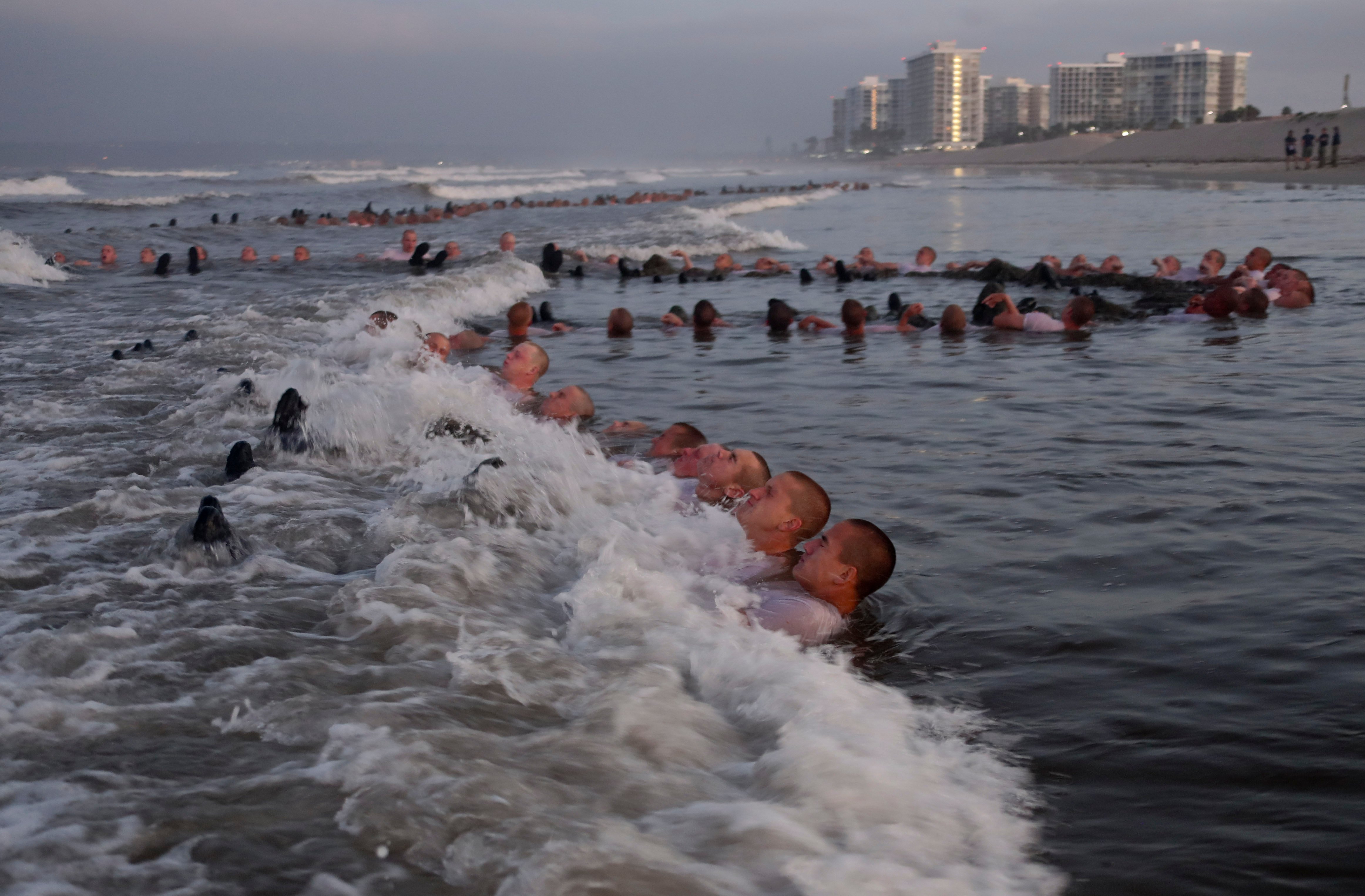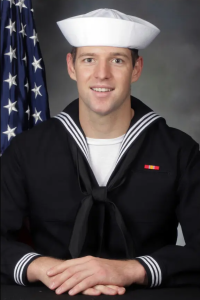
SEAL candidate Kyle Mullen died of acute pneumonia, compounded by an enlarged heart, according to a Navy investigation into his death after completing Hell Week reviewed by USNI News.
Mullen’s Feb. 4 death was determined to be in the line of duty and not due to his own misconduct, according to the investigation. While the investigation includes reports suggesting that performance-enhancing drugs were found among Mullen’s positions after his death, they did not contribute to his death, according to the findings from the service.
Mullen started Basic Underwater Demolition/SEAL training in July 2021, but after finishing the first phase, he suffered heat stroke and was removed from his class. In December 2021, the Navy determined he had recovered, signed an interim waiver and allowed him to join a new class.
He started phase 1 of BUD/S training on Jan. 4, 2022, according to the investigation. Other candidates noticed that Mullen experienced occasional breathing issues, but he recovered and seemed okay.
Medical personnel did not observe the breathing issues, but it is possible that Mullen had Swimming Induced Pulmonary Edema, a medical condition that is linked to repeated exposure to cold water, according to the investigation.
SIPE symptoms include coughing pink or bloody excretions and shortness of breath, which is due to the build-up of fluid in the lungs, according to the investigation.
“Although common in BUD/S candidates, SIPE is still poorly understood,” according to the investigation.
There were about six to eight sailors who were monitored for SIPE during Hell Week, but Mullen was not one of them, according to the investigation.

During Hell Week, Mullen saw Navy medical personnel for pain and swelling in his legs, particularly his right knee. He also reported shortness of breath, with other SEAL candidates saying they saw him coughing up yellow fluids.
Candidates also told investigators that Mullen experienced more swelling in his legs than other sailors.
Medical professionals could hear sounds in his lungs, called rales and rhonchi, which suggest abnormalities in his lungs, according to the report. Mullen was given oxygen two times during the last morning of the Hell Week crucible.
When Mullen finished Hell Week, he went through medical checks, as is standard. Medical professionals determined his lungs sounded abnormal and noted hearing crackles in his right lung. However, his oxygen saturation levels were 98 percent, which indicates that oxygen was circulating well. Good oxygen saturation levels do not necessarily mean there is not an issue with the lungs.
Due to the swelling and chaffing, Mullen returned to the barracks in a wheelchair, according to the investigation.
On Feb. 4, watchstanders recommended that Mullen seek medical attention, but he elected to wait until the medical check the next morning.
At 2:35 p.m., one of the watchstanders called the duty medical officer because Mullen was unable to eat without vomiting. He was also coughing and spitting up fluids, according to the investigation. The duty medical officer said that if Mullen was in “bad shape,” the watchstander should call 911.
Most SEAL candidates do not seek outside medical help unless absolutely necessary, according to an unidentified doctor interviewed as part of the investigation.
“The reason we have that on there is because we understand what the students have gone through and how to treat it. If they go to the emergency room (ER) with ‘chaffing’ the medical staff at the ER won’t understand [Hell Week] ailments and may over-diagnose the root cause, not that that is bad if necessary, but they may receive treatment that isn’t as necessary and can be diagnosed with an ailment that is disqualifying, like rhabdo,” the doctor said, according to the investigation.
SEAL candidates are told that the Navy medical providers can see them at any time, but in practice, that means that Navy providers will do phone calls where they assess and diagnose, according to the report.
“The timing gap between the call and arrival of duty personnel on-site may make it more conducive to just go to the ER,” according to the investigation.
About an hour later, Mullen had blueish skin with other sailors saying he appeared to be struggling to breathe and looked bloated. At 4:03 p.m., the candidate officer-in-charge for Mullen’s class called 911.
The Federal Fire Department arrived at 4:24 p.m. Mullen was unresponsive with no pulse. Emergency medical services started CPR and used machines to provide advanced life support.
He was taken to SHARP Coronado Hospital and Healthcare Center, where he pronounced deceased at 5:35 p.m.
An autopsy, which was included in the investigation, found that Mullen died of pneumonia caused by Strep A. It is not clear from the investigation how Mullen developed pneumonia, but he was not tested for it while alive.
Mullen did not get a chest x-ray, one way a doctor can determine if a person has pneumonia. Both SIPE and pneumonia can result in coughing up fluids, according to the report, but on Feb. 4, Mullen was coughing up a heavier fluid then the other sailors with SIPE, according to candidates interviewed for the investigation.
As a result of Mullen’s death, the Navy has launched a separate investigation into the Naval Special Warfare Command selection process.
“While NSW awaits the results of the separate, ongoing investigation, NSWC has closely examined all aspects of its training programs,” reads. statement from the command.
“This includes the institution of a cardiac screening program; increased prevention measures for pneumonia; the extension of the observation period for 24 hours post securing both BUD/S Phase 1 Assessment and Selection crucible events; and “medically safe-to-train” performance-enhancing drugs testing through urine tests.”





